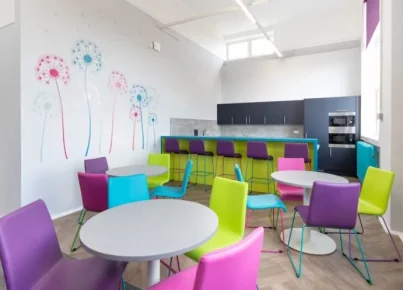Failure provides us with life’s most valuable learning opportunities. Education leaders embrace this as well as the uncertainty that comes hand and hand with running a school or entire district. With that being said, they are not afraid of taking calculated risks, because they understand that with high risk comes high rewards.
Don’t take risks, take calculated risks
Again, I said calculated risks. This means that even though you are taking a chance, you have weighed the pros and cons and looked at all of the available data and information. If the move bears fruits, it could mean a lot for your district. If the move does not bear fruit, don’t fret, just use the failure as a learning opportunity. Sooner or later, the experience yielded from that failure will help you make a decision that will be successful.
This is what makes taking risks so important. If you succeed, right off of the bat, you win. If you fail and then use this information to make an essential decision in the future, you still win. Basically, you can’t lose, even if you tried. Yes, taking risks can be scary, and yes, not everyone will interpret failure as you do. However, the experience of taking risks will make you a better leader. Isn’t that what it’s all about?
The truth of the matter is that most people are not comfortable with taking risks, and so they play it safe. With that being said, how can a non-risk taker turn themselves into a risktaker? Well, it is not easy to go from one extreme to another. But is possible to make some strides in a short period.
A little homework
Over the next 4 months, whenever you are about to make a decision that could be labeled as “playing it safe,” consider choosing the riskier option. What additional rewards or benefits could come along with this decision? What are the drawbacks of taking this risk? If the benefits outweigh the risks, then go for it. Your risktaking should yield favorable results over the long term, which makes it totally worth it.



